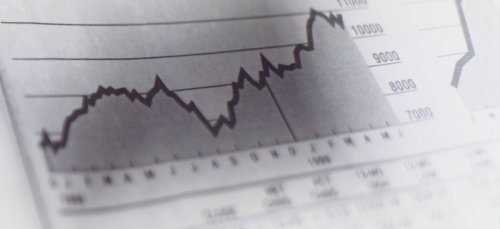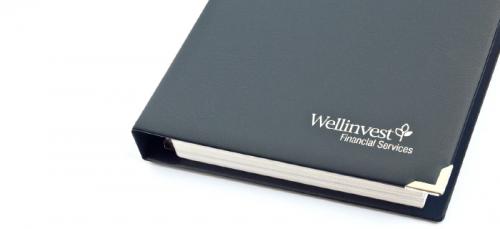Articles and Company News
We aim to keep our clients up-to-date with news and relevant opinions which concern your finances. Our regular email bulletin is designed to inform and share views with our members.
2013
The DIY Syndrome

I never cease to be amazed by how the whole financial services industry manages to generate an aura of mystery and complexity for itself.
Maybe it's a built-in self-preservation mechanism.
This applies to stock brokers, the Stock Exchange, superfund managers, real estate sellers, accountants and many (if not most) financial advisers. And of course the media.
I recently attended a seminar at the ASX on Tax effective Income Investing. (This was about investing for income, not about investing income; again ambiguous terminology - and this is the ASX!!)
This was a lunch-time presentation (free to the public). Commendable. There was a good attendance - close to 300.
At the conclusion, I couldn't escape the impression that most attendees were in 'information overload', and would have left with no appreciable benefit.
But they would have gone back to running their own portfolios and self-managed super funds. And - with few exceptions - continued to experience the same mediocre investment returns. And still under the delusion that they could 'beat the experts'. And at minimal cost.
Then again, they may have held a few company shares, and which - through no expertise or good management on their part, may have experienced price-increases, due - as always, and only due - to increased buying demand. And yet, unless they are thinking of selling, produces no real benefit, other than 'warm fuzzy' feelings.
The point is, that if the dividend earnings hadn't improved, then the only benefit would be if they sold out at a profit. But if they are good, dividend-producing shares, why would anyone want to sell them? And unless they did have good dividend earnings (or expected future good dividends), why else would the shares have been in demand and risen in price?
To summarise, unless you're a speculator and aim to make a capital profit, you hold an investment for its income-earning potential. You can assess an investment on its income earning potential. If you can trust the income, you can trust the investment.
This is not rocket science. You don't need a degree in economics. You don't need to do courses at the ASX.
The simple facts are
- You can't go past Australian 'blue chip' industrial shares for a consistent, reliable, growing income-stream.
- Dividends are paid 'per share'. They are not determined by whatever the share price happens to be. If you are investing for income, share prices don't matter; its dividends that count.
- It isn't worth 'doing it yourself'; It's too much bother. It can become a book-keeping nightmare. And need costly tax returns. And complicate your estate in the bargain.
- A managed fund shouldn't cost you more than 1% of your funds, per year.
- Managed funds come 'packaged'; that is, they do all the record-keeping, book-keeping and tax-accounting for you. They also have constantly available, up to the minute reporting. And liquidity is never a problem.
An adviser comes at another 1%. And assists you with everything from selecting funds, monitoring, conferring, explaining, reporting and keeping you on track. And more than covers the cost of his/ her services in economies and better investment results.
Why DIY?
2013
Investment Income

Whether you’re retired, and living on your savings, or still working and saving for retirement, read on.
The key to your financial security and well-being is investment INCOME. Investment INCOME, not capital gains.
So, it follows that you need to ensure your funds are invested to generate the optimal level of reliable, continuing investment INCOME.
In regard to capital gains, unless these are MASSIVE - say 10 to 15% per year, and can be relied upon to remain so, year in year out - you can’t realise on them without jeopardising (selling off) the very source of your income.
In other words, to benefit from capital gains, you have to part with your capital!
Superannuation funds report their investment returns in terms of ‘growth’; that is, how much the amount of your funds has increased (or decreased) over the reporting period - normally the financial year, July to June.
This means the “returns” may include capital growth (or contraction) and investment Income.
Bear in mind they don’t tell you how much capital growth, nor how much investment income, but give you a consolidated figure.
This used to seem OK - even irrelevant - when we had high inflation, and share-prices and property were rising in value year after year. But today inflation is only 2%pa, share-prices are still 35% below their 2007 levels, and property prices remain equally subdued.
Also, lets bear in mind that even the ‘massive’ gains were illusory - they were eroded by inflation! What mattered then (though we didn’t appreciate it), and what matters now, is Investment Income! Not capital gains. Investment Income.
So, if we are to rely on investment Income for our present and future security, where do we find the highest levels, the most consistent source, the greatest likelihood of increasing income?
Here’s what the banks are paying – December 2012
| Bank Savings account | 0.5 - 3% pa (variable) |
| Term Deposits (eg. NAB, 12 months) | 4.45% pa |
| ING Direct | 3.5% pa (variable) |
| Ubank | 4.21% pa (variable) |
| BankWest CMT | 3.25% pa (variable) |
Residential rental property is yielding between 3 and 5%pa (gross)
Australian Industrial shares (previous 12 months’ gross dividend –: 26/11/12 prices), typically present in Superannuation share-funds
| NAB ($2.57/$23.70) | 10.84% |
| Telstra ($0.40/$4.22) | 9.47% |
| Wesfarmers ($2.35/$35.02) | 6.71% |
| Woollies ($1.80/$28.55) | 6.3% |
So choose wisely; the consequences of an unwise choice can be disastrous. To illustrate:
- $300,000 in a 4.45%pa term deposit will give you $256.73 per week pension (but never increasing, unless interest rates change).
- $300,000 earning 6% dividend income will give you $346 per week (with every prospect of increasing year by year).
- $100 per week, invested at 3.5%per year for 40 years will give $507 per week pension.
- $100 per week invested at 6% per year for 40 years will give $928 per week pension.
The Reality Dividends of typical Australian ‘blue chip’ companies have increased 2.8 fold over the past 15 years.
Has your income?
2013
Wills and Powers of Attorney

Your Will is a legal document that names the people you want to receive your property and possessions at the date of your death.
These people are known as your beneficiaries. Your property and possessions include everything you own: your home, land, car, money in the bank, superannuation and insurance policies, shares, jewellery, household contents, antiques, collections, intellectual property and so on.
It is particularly important to make a will if you have a family or other dependants. Even if you are married with dependants you need a Will. If husband and wife die together, for instance in a motor accident, the older person is normally presumed to have died first. If you were the younger person, you might have inherited assets from your spouse – even though you were by then deceased – but, if you had not made a Will, your assets would be distributed under a rigid formula regardless of what you might have wished.
If you don’t have a Will, you’re not alone – a recent Newspoll survey revealed that 43 per cent of the adult population in NSW does not have a Will. And yet writing a Will is something every Australian aged 18 or over should do.
An up to date and legally valid Will is the best way of making sure you look after your loved ones, and leave them with the things you love.
Equally as important as your Will, a ‘Power of Attorney’ is a written document in which you (the ‘principal’) appoint someone else (‘attorney’) to act for you. Your attorney can do any legal act you ask him or her to perform.
Everyone should consider having a Power of Attorney.
The power of attorney allows you to pick someone you trust to handle your affairs if you cannot do so yourself. It gives you peace of mind, reassuring you that in an emergency, someone you choose will have the authority to act for you.
If you don’t have a power of attorney and you are suddenly incapacitated, your family may have to go through an expensive and time-consuming court action to appoint a guardian or conservator to make decisions for you.
Please contact our office should you require any additional information regarding Wills or Powers of Attorney.
2013
A Personal Note
2013 marks the 45th year of my being a practicing financial adviser, and 38 as Wellings & Associates. I thought it fitting to set out one or two things I have learnt, and that may be of value to any one interested.
Firstly, financial advice is not about “creating wealth”. It is about attaining and conserving financial security, and thereby a contented life.
Secondly, the ‘secret’ of building financial security is that it’s a matter of saving first and spending what’s left. The other way round just doesn’t work.
Thirdly, invest for Income. Anything else is speculative. If the investment has a reliable, consistent, and growing income-stream, you can trust
that investment.
Superannuation is important. It is insurance - against poverty when you’re too old to work and too young to die. It shouldn’t be clever, sophisticated and complex. Keep it simple and it will work. Neglect it at your peril!
Managed funds are by far the most appropriate means of investing. Well-chosen, they are cost-effective, provide most reliable value, and they work. Australian Industrial shares offer the most reliable, consistent, and growing income-stream for long-term investment.
Income Protection Insurance is imperative - if you work for a living. So is Life Insurance, if you have Loved Ones, and/or Debts.
Finally, Australia is, without doubt, the Lucky Country. It’s a wonderful place to live, to work, and to invest! Lets be thankful.
My Best Wishes for 2013
Jack Wellings
2012
Let’s Talk “Insurance”

Let’s make sure...
- You will be able to retire when you’re still fit, healthy and full of fun.
- You will be totally debt-free, by the time you retire.
- You will be able to enjoy life to the full when you retire – a nice home, cars, holidays, travel, great hobbies, and an adequate pension.
Do you have this type of insurance?
Well, if not, you really have a very serious problem.
In fact, you are running the risk of financial failure. It’s that simple.
But where do you get it?
What’s it called?
Does it exist?
The answer is yes, but it doesn’t come from an insurance company.
It’s called a Financial Plan; a fully-analysed and fully-documented Financial Plan.
It’s your insurance against financial failure. And, like any well-designed plan, it has to be managed.
We design and manage financial plans. It’s what we do.
Don’t risk your future – it’s your most valuable asset!
Come and see us or contact us anytime.
